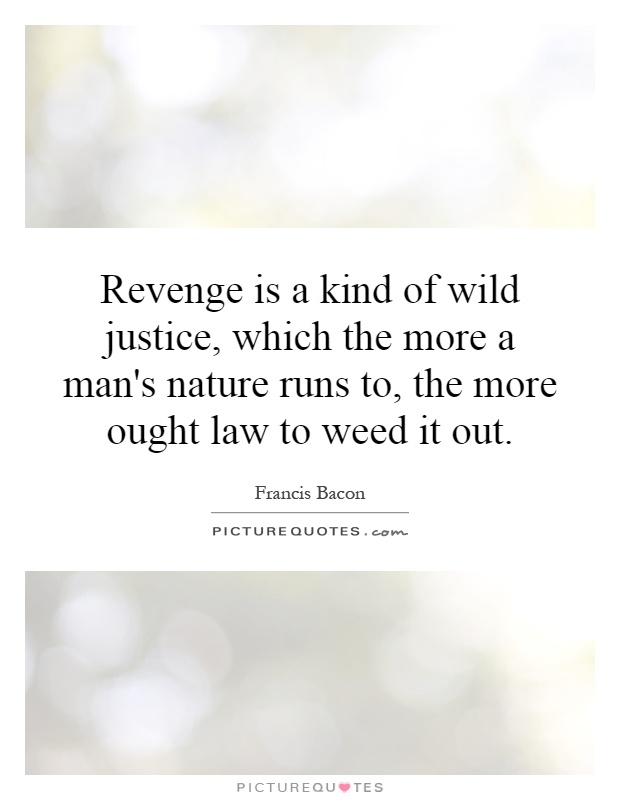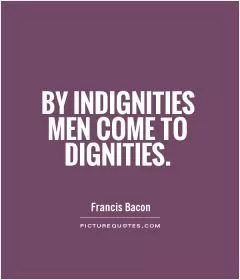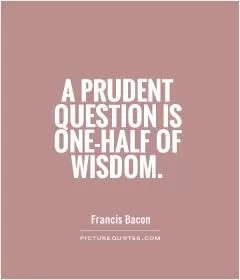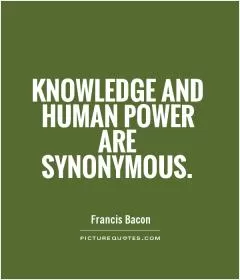Revenge is a kind of wild justice, which the more a man's nature runs to, the more ought law to weed it out

Revenge is a kind of wild justice, which the more a man's nature runs to, the more ought law to weed it out
In his essay "Of Revenge," Francis Bacon explores the concept of revenge as a form of wild justice that goes against the principles of law and order. Bacon argues that revenge is a natural impulse for many individuals, but it is also a destructive force that can lead to further violence and chaos. He suggests that the law should intervene to prevent individuals from seeking revenge and instead promote a more civilized form of justice.Bacon begins by acknowledging that revenge is a common human emotion, often fueled by feelings of anger, betrayal, or injustice. He notes that revenge can provide a temporary sense of satisfaction and vindication for the individual seeking it, but ultimately it only serves to perpetuate a cycle of violence and retribution. Bacon warns that those who are quick to seek revenge are often blinded by their emotions and fail to consider the consequences of their actions.
According to Bacon, the law has a crucial role to play in curbing the impulse for revenge and promoting a more rational and just form of justice. He argues that the legal system should provide a fair and impartial means of resolving disputes and punishing wrongdoers, rather than allowing individuals to take matters into their own hands. Bacon believes that the law should act as a deterrent to revenge, by imposing consequences on those who seek to harm others in the name of justice.
Bacon's views on revenge are reflective of his broader philosophy on the role of reason and order in society. He believed that human beings are capable of rational thought and moral judgment, and that the law should be used to guide and regulate their behavior. By advocating for the suppression of revenge, Bacon sought to promote a more harmonious and civilized society, where conflicts are resolved through peaceful and lawful means.












 Friendship Quotes
Friendship Quotes Love Quotes
Love Quotes Life Quotes
Life Quotes Funny Quotes
Funny Quotes Motivational Quotes
Motivational Quotes Inspirational Quotes
Inspirational Quotes